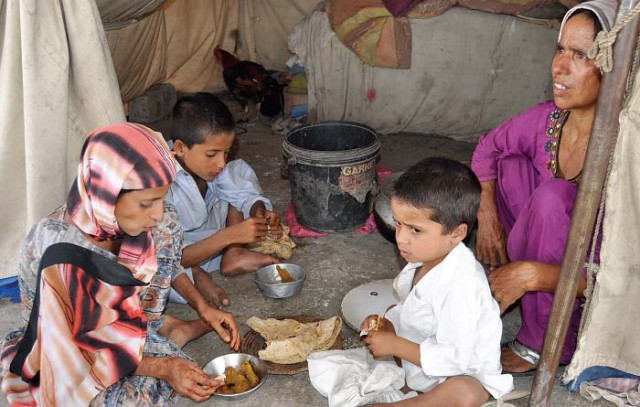Relief camp: Flood survivors forced to retreat from last functioning camp
Govt tries to remove people by cutting off amenities, claim camp is on private property.

Relief work came to an end at the New Sabzi Mandi flood relief camp on May 12 on the orders of the district government.
With the water supply disconnected, food and medical aid abandoned and makeshift schools packing up, the remaining flood survivors at the last functioning relief camp in Hyderabad are being forced to return.
Although the government is not physically removing the dwellers, it is no longer providing them any amenities at the camp. As many as 19,000 flood survivors were accommodated at the camp, which was the largest of the 22 set up in the city. Several social activists and NGOs worked with the government to help the remaining 800 to 1,000 people there.
According to the government, the camp was set up on private property and since an emergency no longer exists, the camp dwellers should leave.
Sikander Shah, who is in charge, said that the place belongs to the Market Committee, which wants to inaugurate a new vegetable market at the site. “No more than 150 people were living at the camp and they have no right to be there,” he added.
The Market Committee’s assistant director, Shoukat Mastoi, agreed with Shah. “We have to shift the old vegetable market to the spot. We have also sold some of the land to private owners, who are demanding the possession of the property,” said Mastoi.
The flood survivors have their own reasons to stay on. “We need at least Rs8,000 to Rs10,000 for transport and other expenses to return to our villages,” said Roshan Chandio, the father of six children. He hails from a village in Shahdadkot district and is working at a pickle factory. He slices up to three bags of unripe mangoes, each weighing 40 to 60 kilogrammes, to earn Rs50 per bag.
Shareefan Abro was staying at the camp with her four children and her bed-ridden husband. She is afraid to go to her village because she has to repay Rs40,000 in loans to a landlord. “I had hoped to repay the loan with the Watan Card but we haven’t received the second installment yet,” she said. Her two sons are working at a restaurant but they only earn enough to make ends meet.
Most of the camp dwellers faced similar problems. “Our small piece of land was inundated by the water. We want to return but the army doesn’t allow us,” said Mundaan Bhatti, who came from a village near Pannu Aqil. However, the government is determined to force out the camp dwellers.
The Child Friendly Spaces (CFS), an initiative of a non-governmental organisation which was temporarily educating 350 children at the camps, was packing up on Wednesday. The project manager, Fakhira Abro, told The Express Tribune that her organisation has been asked to stop its work.
“We were running four CFS at the camp. Children between six and 12 years of age were engaged in five activities: creative, physical, communicative, cultural and imaginative,” she explained.
Fakhira said the children were traumatised when they first established the camps because some lost loved ones, while others were unable to deal with the displacement.
The CFS taught up to 2,000 students at one time in three shifts. “Helping the children move past their stress to lead a normal life was a big challenge for us but we did it. Now, as they leave us, we are trying to make their parents realise the importance of continuing to educate their children no matter where they go from here,” said Fakhira.
Published in The Express Tribune, May 27th, 2011.



















COMMENTS
Comments are moderated and generally will be posted if they are on-topic and not abusive.
For more information, please see our Comments FAQ